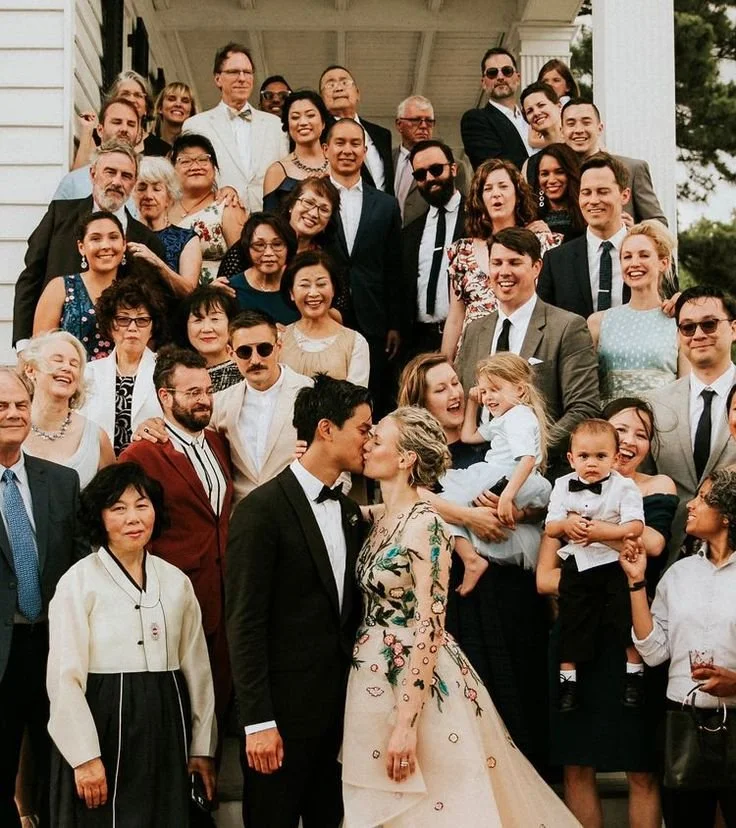Hidden Fees to Watch Out for When Booking a Wedding Venue
A couple shares a quiet moment on a beach. Photo Credit:@frankiefoto
Weddings are magical, but, honestly, planning one can feel like a full-time job. That’s why finding the perfect venue is such a big win! When it fits your vision and budget, the angels sing!
However, just when you think you’ve found the perfect venue… surprise! The final invoice has a few mysterious extra expenses you didn’t see coming.
So, before you sign on any dotted lines, you’ll need to know what’s what. Here are some sneaky wedding venue fees to look out for so you and your new spouse don’t suffer from a case of sticker shock on your special day!
Service fees and administrative charges
You'd think the quoted price is the full price, right? Not quite. Some venues tack on a service fee, usually around 15–25%, to cover services like event coordination, venue staffing, and unclear “administrative” costs.
These can seriously inflate your total without adding much in the way of value. Always ask if the service fee is included in the base price or if it’s added on later.
Required vendor fees
A venue manager shows a couple around the space. Photo Credit: SLR Lounge
Some venues have preferred vendors they “highly recommend” to couples booking their space. This can actually mean you’re required to use them. And guess what? These vendors may come with hidden markups inspired by their relationship with the venue.
Found a dreamy florist on Instagram? Not allowed. Ask about vendor flexibility upfront. If you're stuck with a venue-mandated list, get their rates early, so you’re not blindsided when it’s time to pay up. Remember to ask questions before booking a venue.
Corkage fees and cake-cutting fees
Planning on bringing in your own food, cake, or alcohol? Then you need to watch out for the old “you brought your own stuff, now pay us to serve it” trick.
Many venues charge a corkage fee if you bring your own alcohol, which can range from $10 to $50 per bottle. You may also be required to hire their bartender to serve the beverages to guests.
The same goes for cake-cutting. Some venues charge per slice, even if it’s your aunt’s homemade masterpiece. This is to cover the cost of their staff. Always confirm these policies before you choose to bring your own items.
Cleaning, setup, and teardown fees
Cleaning up after the party is the last thing on this bride and groom’s minds! Photo Credit:
Valhalla Audio Voyage
Many couples believe that the high price they are paying for a wedding space means it’s going to be ready to go on the big day.
But setup, cleanup, and teardown often come with their own price tags. Some venues require you to pay their staff to handle it, or worse, expect you to manage it yourself right after your reception. Not exactly the vibe you want when you’re still in heels and looking to turn in after a long day.
Make sure you ask about these expectations and fees. Don’t be afraid to ask your loved ones to pitch in if the venue is hands-off for set up and teardown.
Parking, valet, and shuttle service fees
Getting guests to your venue is one thing, but getting them parked is another. Many couples assume that there will be free parking at the venue, but this isn’t quite the case.
Some spots charge extra for valet services or require you to book a shuttle if parking is limited on-site. Even self-parking might cost a few bucks per guest.
These fees can add up fast, especially for larger weddings, so make sure to ask what’s included. That way, you don’t end up with a huge bill just so guests can leave their car somewhere safe.
Extra costs for going over the time limits
Every venue has a clock, and once it hits midnight, or the end time stated in your contract, things get pricey. Going over your contracted time, even by as little as 15 minutes, can lead to hefty overtime fees that will inflate your venue bill.
Build a buffer into your schedule and clarify exactly what happens if things run late. Ask a trusted friend or family member to keep an eye on the clock to ensure the festivities move along at the correct pace.
However, you may just have to bite the bullet and pay the fees if your event goes overtime. Because let’s face it, weddings rarely run like clockwork.
Minimum guest count penalties
A newlywed couple shouldn’t have to pay fees for having an intimate wedding! Photo Credit: Martha Stewart
Some venues have minimum headcounts, meaning you’re on the hook for a certain number of guests, whether or not your RSVPs meet it.
Find your totals falling short? You’ll pay for “ghost guests.” Make sure the minimum makes sense for your guest list, and if you’re unsure about numbers, ask if they offer tiered pricing or flexibility.
If you are struggling to meet the minimum guest count of the venues on your list, consider planning a micro wedding at a more flexible space.
How to review contracts to spot hidden fees early
Read every contract from top to bottom like you’re a lawyer.
Look for the words “additional,” “subject to change,” or “optional.”
If something is unclear, ask! Never assume that an aspect is covered.
Bring a highlighter with you, or use the tool on the PDF reader, to highlight fee-related sections. This will make it easier for you to focus on them.
Ask for an itemized quote that breaks down everything that’s covered. If the venue won’t provide one, that’s a huge red flag!
Specialized Fees by Venue Type
Different types of venues come with their own brand of hidden costs. Some are quirky, while some will lead to some head-scratching.
Here's what to look for based on your venue style of interest.
Barns & Farms - These rustic gems often require extra rentals. Think portable bathrooms, heating or cooling units, and even generators to power the lights. Many also charge for lawn damage or property maintenance if your guests celebrate a little too hard on the hay bales or damage the fields with their cars.
Ballrooms & Hotels - Upscale spaces usually come with higher service fees, plus additional charges for using outside vendors. Also, watch out for cake-cutting and corkage fees here. They tend to be steep. Don't forget valet or guest room blocks that don’t meet their quotas!
Beach or Outdoor Venues - Nature is beautiful, but unpredictable. You may need to pay extra for tents, flooring, or permits that you didn’t plan for. Some venues require a tent regardless of the forecast. You'll often be on the hook for sound system rentals as well.
Destination Weddings - Planning from afar? You might encounter coordination fees, resort service charges, or destination-specific taxes. Plus, if you’re using a venue’s package deal, double-check for upsells like upgraded linens, premium liquor, or private beach access that may not be as “all-inclusive” as you may think. Sometimes, those all-inclusive packages have places where you can cut costs that aren’t advertised to preserve the venue’s bottom line.
Each type of venue has its own personality. This also means that, unfortunately, they each have their own set of fine print. The key is to anticipate what’s not included in that dreamy brochure and protect yourself by asking the right questions AND reading the entire contract before you sign!
Conclusion
Your wedding day should be the happiest day of your life. So you want to do everything you can to avoid surprise fees and hidden costs.
Knowing what fees to look out for gives you the power to ask the right questions, avoid nasty surprises, and stay within your budget without compromising the beauty and splendor of your special day.
You’ve got enough to think about! Let the venue costs be the part you can control.





